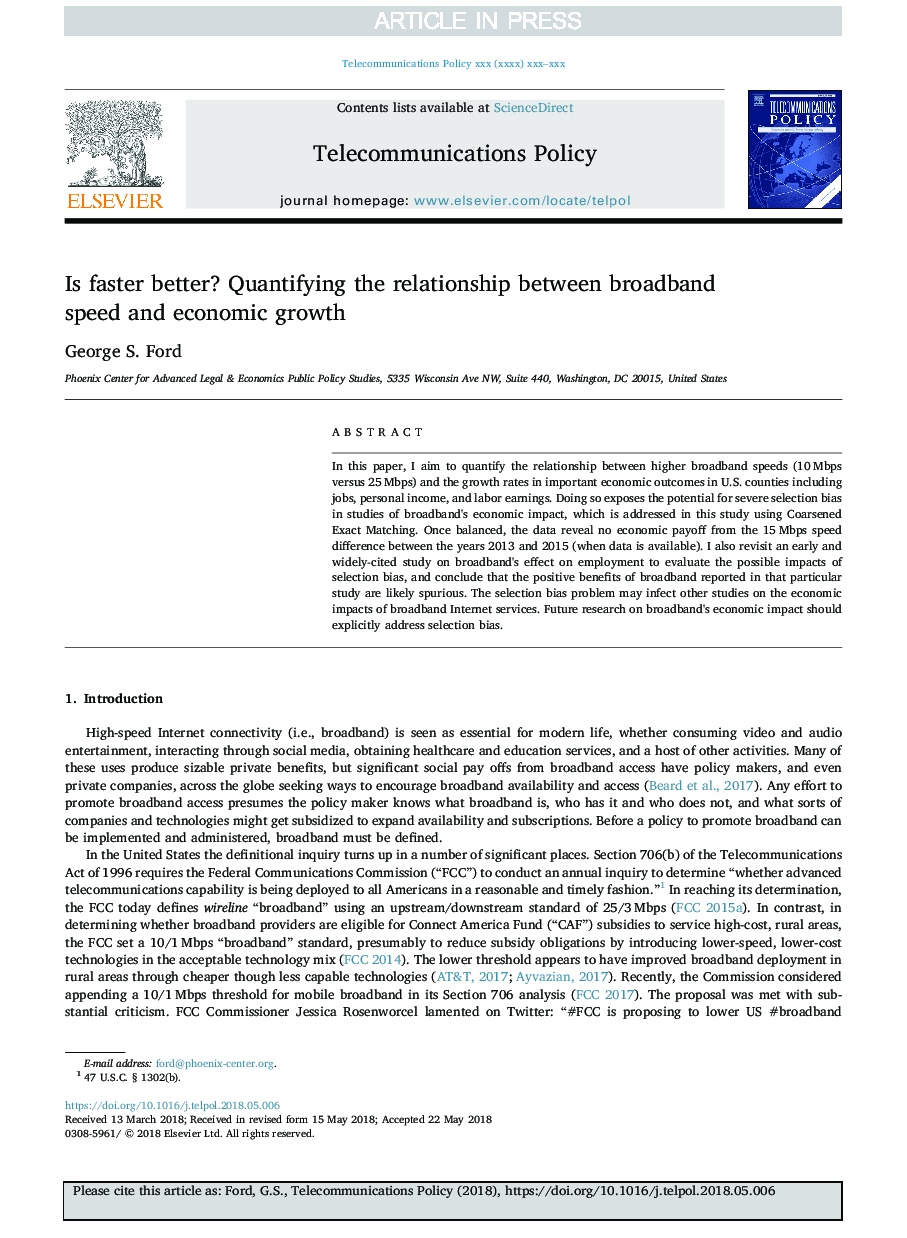| Article ID | Journal | Published Year | Pages | File Type |
|---|---|---|---|---|
| 11012381 | Telecommunications Policy | 2018 | 12 Pages |
Abstract
In this paper, I aim to quantify the relationship between higher broadband speeds (10â¯Mbps versus 25â¯Mbps) and the growth rates in important economic outcomes in U.S. counties including jobs, personal income, and labor earnings. Doing so exposes the potential for severe selection bias in studies of broadband's economic impact, which is addressed in this study using Coarsened Exact Matching. Once balanced, the data reveal no economic payoff from the 15â¯Mbps speed difference between the years 2013 and 2015 (when data is available). I also revisit an early and widely-cited study on broadband's effect on employment to evaluate the possible impacts of selection bias, and conclude that the positive benefits of broadband reported in that particular study are likely spurious. The selection bias problem may infect other studies on the economic impacts of broadband Internet services. Future research on broadband's economic impact should explicitly address selection bias.
Related Topics
Physical Sciences and Engineering
Computer Science
Information Systems
Authors
George S. Ford,
